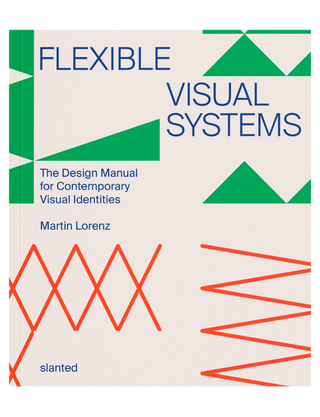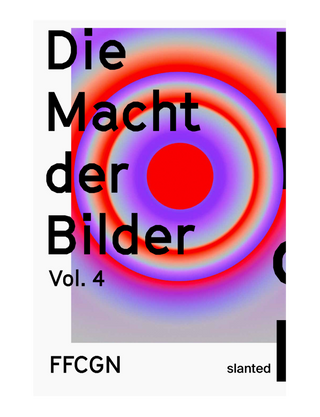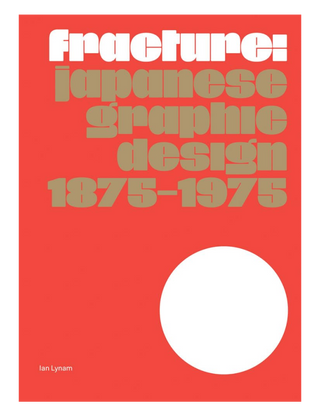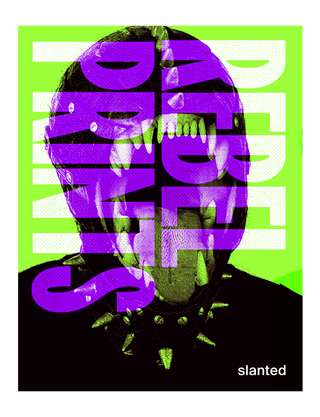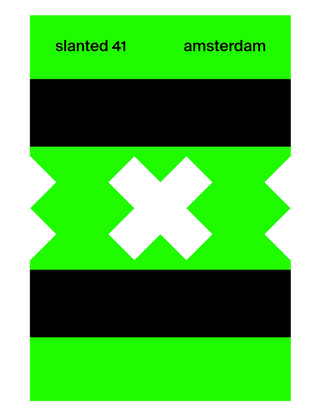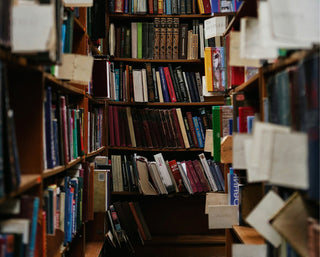In recent years, there has been a real boom in reading and interest in one's own literature among Ukrainians. I ask myself why?
The fact is that when we face difficulties or go through difficult times, as now in Ukraine , books become a real lifeline for us. They help us understand why we feel the way we do and help us not lose hope.
People often look for books that have changed their lives because they contain not only knowledge but also inspiration.
Books that change lives: a selection of 10+1 iconic works
In this article, we have collected 10+1 books that have had a significant impact on people's lives, from ancient times to modern times, and we will understand why their influence remains relevant to this day.
Looking for a book that will change your perception of the world?
If you are looking for a book that can influence your thinking, choose one of our nonfiction or reportage books on the site.
👍 We have gathered one of the largest collections of non-fiction in Ukraine so that you can read about real events, analyze facts and develop your critical thinking.
So, check out my short review of 10+1 outstanding books that can change your life.
1. "Kobzar" by Taras Shevchenko
"Kobzar" by Taras Shevchenko is not just a collection of poems; it is a sacred text for Ukrainians, which has become a symbol of national identity, the struggle for freedom and dignity. This book, written in difficult times for the Ukrainian people, speaks of deep feelings, hopes and aspirations for freedom, which makes it an integral part of Ukrainian culture.
Shevchenko, as a great poet and thinker, conveys through "Kobzar" not only his personal struggle, but also the suffering and dreams of the entire people. He raises important topics such as serfdom, social injustice, national liberation and love for one's land. His poems reflect longing for lost traditions, as well as a burning desire to see Ukraine free and independent.
In the context of modern events, in particular the war with Russia, "Kobzar" acquires a new relevance. Shevchenko's lines about the struggle for truth, for human dignity and will inspire Ukrainians who today defend their independence. His words remind us that even in the darkest times it is important to remember our roots, preserve our national identity and strive for a better future.
In addition, "Kobzar" is not only a poetic, but also a philosophical work that invites the reader to think about questions of morality, justice and the meaning of freedom. This book became the basis for the formation of Ukrainian national consciousness, and its poems sound like a call for unity and the struggle for human rights.
Recently, we wrote a long article about Ukrainian writers worth attention - be sure to read it. I am sure that there you will find many other works and authors who are able to change the perception of Ukrainian literature.
Also, see our selection of Ukrainian literature .
2. "Alone in the Ocean" by Slava Kurilov
The book "Alone in the Ocean" by Slava Kurilov is an incredible story of courage and the search for freedom, which deeply resonates with the human desire for independence. This book inspires you to fight for your dreams, even when the odds seem slim, and shows that true freedom always requires risk.
The first important takeaway is that true independence is more than just physical liberation. Kurilov talks about his escape from the Soviet Union across the open ocean, emphasizing that freedom begins with an inner willingness to go against the system if it conflicts with your essence.
The second important lesson of the book is willpower and endurance. Having spent several days in the open ocean, Kurilov proved on his own experience that a person can survive in extreme conditions if he is driven by a deep desire for a goal. This story reminds us that achieving big dreams requires not only desire, but also the willingness to endure difficulties.
And finally, the third lesson is that true happiness is not only the achievement of external goals, but also self-discovery. Kurilov not only found physical freedom, but also deeply learned about himself, his resilience and ability to fight for his dream. The book teaches that true growth comes when we face the toughest challenges and stay true to our values.
3. "1984" by George Orwell
George Orwell's 1984 is a powerful dystopian novel that provides an in-depth analysis of how a totalitarian regime can distort reality, destroy freedom, and control people's minds. This book has a special resonance for Ukrainians who are living through the war with Russia , where the consequences of disinformation and manipulation of consciousness are felt every day.
In "1984", Orwell creates a terrifying world where "Big Brother" watches every step of its citizens, and speech and even thoughts are subject to strict control. Orwell masterfully shows how totalitarian regimes use propaganda to rewrite history and shape perceptions of reality, blurring the lines between truth and lies. For Ukrainians who witnessed information manipulation by the aggressor, the lessons of this book are particularly relevant.
One of the key ideas of "1984" is the concept of "new language", which aims to reduce the possibility of critical thinking and limit the freedom of thought. In today's world, where propaganda and disinformation have become tools of warfare, Orwell urges us to be vigilant and resist the government's attempts to control our thoughts and emotions.
The book also emphasizes the hopelessness and despair of the heroes who are trying to fight for their individuality in conditions of oppression. This sounds like a reminder to Ukrainians that even in the most difficult times it is important to preserve one's identity, freedom and humanity.
"1984" is not only a novel about a dystopian society, but also a call to action. He calls us to defend our truth, our memory and our freedom from any type of totalitarian control. In the conditions of war and aggression, it is important to remember that the real strength of the people lies in their ability to think, analyze and defend their rights, even when it seems that all avenues are closed.
4. "The Gospel of Wealth" by Andrew Carnegie
"The Gospel of Wealth" by Andrew Carnegie is a classic text that changed the approach to philanthropy and the idea of the responsibility of the rich to society.
Carnegie raises an important question: what does it mean to be rich? In this book, he argues that wealth is not just a means of personal comfort. On the contrary, he believes that a person who has achieved great success has a moral obligation to use his resources for the good of society. This vision became the basis for modern philanthropy, where successful people strive to improve the world around them.
Carnegie also reveals the idea of "smart" use of wealth. In his opinion, simply handing out money is not a solution. He encourages the wealthy to invest in projects that stimulate the development of society, such as libraries, educational and cultural institutions. His approach shows that helping others should be aimed at long-term results and promote real change.
And ultimately, Carnegie's book shows that true wealth is not measured by the amount of money, but by how much it can change the lives of others. The "Gospel of Wealth" calls not only for generosity, but also for a smart, responsible approach to finances that can improve society as a whole.
5. "Tusculan talks. About duties" by Cicero
Cicero's "Tusculan Discourses. On Duties" have been important to many generations of philosophers, politicians, and those seeking to understand ethics and morality in public life. This book became the basis for the study of ethics, as well as for the understanding of civic duties, especially in the context of complex social and political challenges.
Cicero emphasizes that the real duty of a person is not only to fulfill social or professional roles, but also to develop one's own character and integrity. He believes that our actions should be based on an understanding of good and evil, which leads to true happiness and harmony.
A key aspect of his philosophy is the idea that duties to self and society are not mutually exclusive. Cicero calls for the unity of personal goals and civic duties, arguing that ethical principles should guide our decisions in all aspects of life. It asks how to act when conflicts arise between personal desires and societal demands.
In addition, "Tusculan Conversations" reminds us that philosophy is not an abstract theory, but a practical tool that can help us navigate complex ethical dilemmas. This book is essential for anyone seeking a deeper understanding of their role in society and developing their own moral awareness.
Check out our selection of books on philosophy .
6. "Thinking fast and slow" by Daniel Kahneman
"Thinking Fast and Slow" by Daniel Kahneman is a book that exposes us to two radically different ways of thinking that affect our decisions and behavior every day.
Kahneman divides thinking into two types: "fast" and "slow". Quick thinking is intuitive and instantaneous decision-making, often based on emotions and automatic reactions. This is how we react to most everyday situations. At the same time, slow thinking is a deliberate, rational and objective process that requires more time and effort.
Kahneman's key insight is how fast thinking can often lead to cognitive errors and wrong decisions. For example, emotional investors may take impulsive actions, such as buying stocks at a peak or selling them in a panic. Slow thinking, although it takes time, allows for more informed decisions.
Finally, Kahneman shows that learning to use slow thinking can greatly improve the quality of our lives by helping us avoid the pitfalls of intuition. "Thinking Fast and Slow" is a book that expands our knowledge about ourselves and helps us make better decisions by understanding the mechanisms that control our consciousness.
7. "The fine art of scoring on everything" by Mark Manson
Mark Manson's "The Fine Art of Hitting Everything" became a manifesto of the modern generation, which is tired of the endless pursuit of success and positivity.
Manson's main idea is that there is no need to strive for constant happiness or success. Instead, he urges us to identify the few things that really matter to us and kill everything else. Instead of chasing multiple goals, Manson suggests focusing only on the most important, recognizing that you can't be everywhere and please everyone.
Manson also talks about the importance of accepting problems and failures as part of life. Instead of avoiding difficulties, he urges us to choose those for which we are willing to work and suffer. This is a new approach to happiness: not "more good emotions", but the ability to grow through challenges and difficulties.
And finally, the book teaches us the importance of self-acceptance. Admitting your weaknesses, your limitations, and even your failures is a step toward true freedom. Manson reminds us that true satisfaction comes not from the pursuit of external achievements, but from the fact that we are able to value our own priorities and live according to them.
Check out our selection of books on self-development and motivation .
8. "The Art of War" by Cun-tzu
Sun Tzu's "Art of War" has become one of the main sources of inspiration for modern strategists in business, politics, and art, such as Jeff Bezos, Will Smith, and even Jay Z.
This book is more than just a military treatise. It reveals fundamental principles that apply not only on the battlefield, but also in resolving any conflict or achieving ambitious goals. One of the key points of The Art of War is to win without fighting. This means that instead of direct confrontation, one should use cunning, planning and the ability to predict the actions of the opponent.
For example, in business, this strategy consists in finding unique approaches to problems, bypassing the competition. Companies based on the principles of Sun Tzu know that the most effective victory is the one that the competitors do not see.
And, finally, one more universal lesson: knowing yourself and your opponent is the key to success. Sun Tzu emphasizes that true strength lies in understanding one's own strengths and weaknesses, as well as the ability to anticipate the actions of others. In life, this means that in order to achieve big goals, you need not only to act, but also to deeply consider the circumstances and use them to your advantage.
Check out our selection of books about war .
9. "Black Swan" by Nassim Taleb
"Black Swan" by Nassim Taleb shatters our traditional understanding of events that change the world. We usually try to predict the future by relying on past experience, but Taleb convinces us that the most significant events—so-called "black swans"—are unpredictable and rarely fit into our models.
First, Taleb proves that most important changes in our lives happen unexpectedly. Events that seem impossible actually have a huge impact. Black swans can upend economies, change history, or profoundly affect our personal paths—and this teaches us to be prepared for uncertainty.
Further, Taleb emphasizes the danger of our "blindness to black swans". People have a tendency to ignore things that do not meet their expectations, thereby remaining vulnerable. Instead, instead of futilely trying to control the world, we must develop resilience and adaptability.
And finally, Black Swan teaches us to avoid the illusion of control. Taleb suggests looking for opportunities even in chaos and risk. He is convinced that the main thing is not to predict the future, but to be able to quickly react to the unexpected, which is the key to real success.
10. "The Ruler" by Niccolò Machiavelli
Did you know that Niccolò Machiavelli's "The Statesman" became the desk book of many influential politicians, including Napoleon and even Henry Kissinger?
The Statesman is a realpolitik guide that rejects idealism in favor of practical strategy. Machiavelli argues that leaders must be prepared to make difficult decisions where moral compromises may become necessary. The main idea of the book is not about how the world should look, but about how it really is. He advises rulers to be flexible and ready to change their behavior according to circumstances.
For example, Machiavelli emphasizes that the ruler must be able to be both a "lion" - to show strength, and a "fox" - to use cunning to avoid traps. In the modern context, it can be understood as the ability to adapt to situations and make difficult but necessary choices.
Finally, the book emphasizes the importance of controlling your reputation. Machiavelli argues that leaders must always maintain the respect and loyalty of their subjects, even if it means taking harsh measures. "The Ruler" teaches that true leadership is the ability to maintain a balance between strength and wisdom in order to achieve stability and success.
Check out our selection of books about politics .
11. "The Road to Slavery" by Friedrich Hayek
Friedrich Hayek's The Road to Slavery is an important book that calls attention to the dangers of societies where freedom is lost in favor of the illusion of control and collective security. This book is especially relevant for Ukrainians who are living through the war with Russia and are faced with the consequences of the totalitarian mentality deeply rooted in the society of the aggressor.
Hayek argues that the gradual restriction of freedom is a path to slavery, which often begins with the state's attempt to "protect" its citizens through control and planning. He reveals the mechanisms through which individual freedom is undermined by collective interests, and how this freedom is easily lost when society buys into the idea that the state knows what is best for everyone.
For Ukrainians who see how war exposes not only physical aggression, but also attempts to force people into the framework of coercive ideologies, it is important to understand Hayek's lessons. He warns that despotism begins with a hatred of freedom—a hatred that can grow in conditions of fear and uncertainty.
The book also questions the concept of "security at the expense of freedom", urging the reader to think about the price that must be paid for unconditional submission. At a time when Ukrainians are fighting for their independence and dignity, "The Road to Slavery" serves as a reminder of the importance of protecting personal freedoms and rights — because they are the basis for the true strength and dignity of a nation.
This book not only provokes deep thinking about the role of the state and the individual, but also emphasizes that even in the darkest times, while fighting against aggression and untruth, it is important to preserve the values of freedom and dignity.
Looking to read?
Tyra aims to offer the largest selection of non-fiction in Ukraine. In our collection you will find only those books that we have personally chosen and consider important. The main focus is on non-fiction, but we also offer design , business , fiction and children's books .
So what book will you read next?
